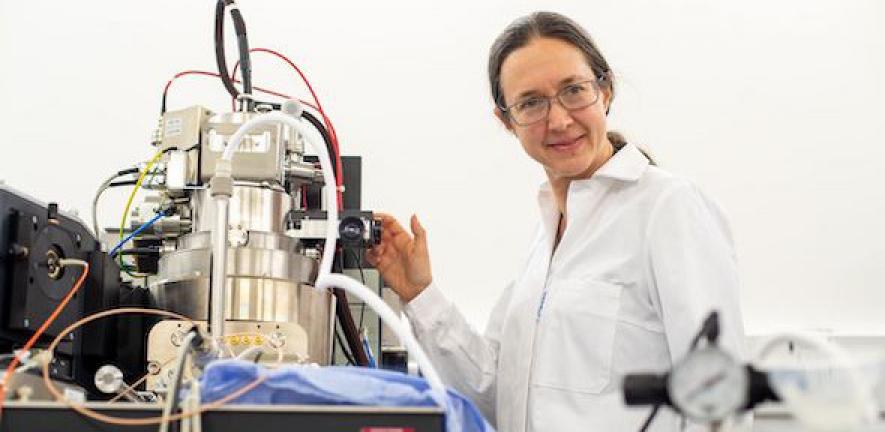
Oliver, a Professor of Materials Science in Cambridge and fellow of Robinson College, pointed to the need for major systemic change to address these inequities: leadership committed to equity and a recognition that policies and processes which ensure fairness and transparency are key to achieving the best research.
She based her talk on a recent report by the EPSRC (Engineering and Physical Sciences Research Council), on their grant portfolio, which exposed vast differences in the size of the awards both applied for and granted to male and female researchers.
According to the report, women submit about 15% of applications for smaller EPSRC grants, but the number drops to about 6% for the largest grants (over £10M). And although men and women tend to be equally successful at receiving smaller grants, success rates start to diverge over £2.5M, with men more than twice as likely as women to achieve grants of over £10M.
Women's lower application rate points to hidden mechanisms in the academic system that prevent or discourage women from applying. For example, female researchers report that they are less likely to be encouraged to apply for funding by their line managers or research deans. They also tend to carry greater administrative and teaching loads than men, which reduces the time they have for writing grant applications.
Many large grant processes also involve some form of internal triage – whereby a researcher needs to get internal University approval before putting forward an application. Differences between men’s and women’s track records, reflecting personal circumstances such as caring responsibilities rather than actual ability, may feed into bias against women in these selection processes.
The biases and barriers revealed in the report inevitably have a huge impact on the careers of women in science. Winning grants is vital to promotion within the permanent academic career pathway, so a lack of access to grant funding keeps women out of senior roles. This drives the gender pay gap, reduces women’s influence in strategic decision making and deprives early career women of relatable role models at the top of their field.
Oliver also highlighted the situation of black researchers and those of other minority ethnicities. Although not directly addressed in the recent report, EPSRC data show lower award rates and lower average amounts per awarded grant for these scientists compared to white scientists.
Oliver concluded that challenging the current system is not only a fundamental question of justice to minoritized colleagues, but will also benefit the overall research ecosystem by drawing on talent, ingenuity, innovations and great ideas that are currently untapped.
More information on the EPSRC report can be found in the blog post of The Inclusion Group for Equity in Research in STEMM (TIGERSTEMM).
Read more about Professor Rachel Oliver in the University of Cambridge web series This Cambridge Life.
Thank you to Department of Chemistry staff member Sharon Connor for writing this article.

